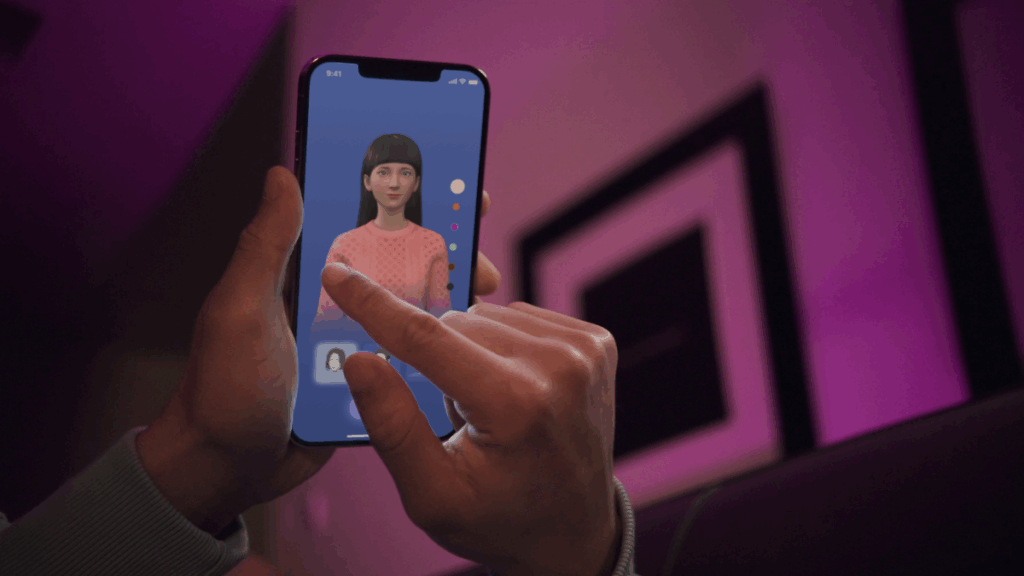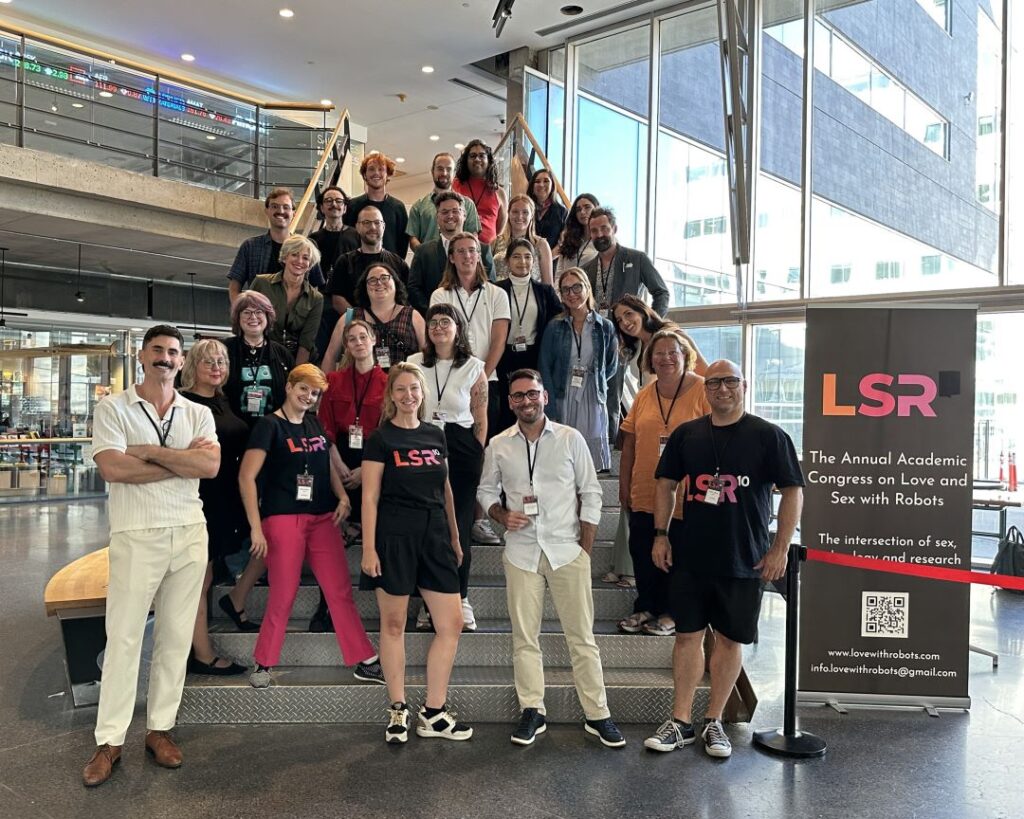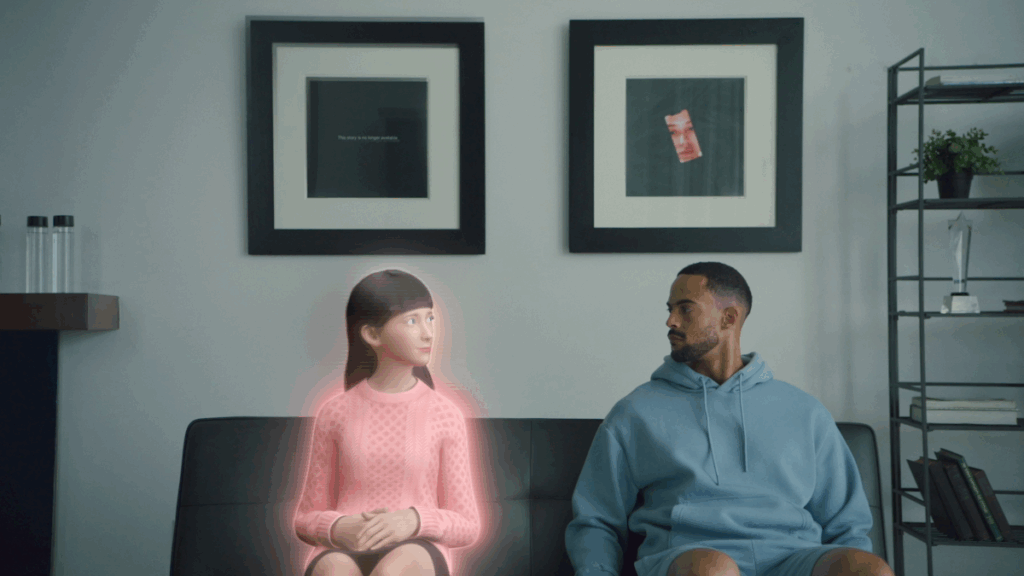In the mood for some playful company, Jamie sinks into the couch and pulls out their phone. They fire off a message to Alex, a special someone who’s always ready with a cheeky joke, a teasing remark, or just the right bit of flirt when the moment calls for it. And more often than not, the banter slides into detailed, no-holds-barred roleplay that leaves Jamie breathless.
The conversation isn’t always erotic. Alex is a good listener, remembers the little things, and knows just how to make Jamie smile. Not bad, especially for an AI. Or maybe it’s Alex’s artificial nature that makes them the perfect companion, whether it’s for friendly daily check-ins or heated late-night exchanges.
Erotic chatbots are rapidly slipping into people’s lives. A 2019 U.S. survey found 8% of adults had tried one.
Often branded as virtual girlfriends or boyfriends, these chatbots don’t shy away from explicit content. While Replika is perhaps the best-known with X-rated functions, others, like Nomi, CharacterAI, Kindroid, Cuties.ai, and Jasmin.ai, are specifically designed for erotic interactions and roleplay. They’re always available, always game, and designed to match your sexual tastes, offering a private, pressure-free space to explore desire and get instant gratification.
Their growing presence has captured the attention of researchers who are eager to understand what is already known and what remains to be discovered about their impact on human sexuality.
A review of research on AI and human sexuality
To explore how AI is shaping intimacy, psychologist Nicola Döring, Ph.D., and her team conducted a comprehensive review of scientific studies published between 2020 and 2024.
Their analysis revealed four main areas where AI intersects with human sexuality: sexual information and education; counseling and therapy; romantic and sexual relationships; and erotica and pornography. This article is the second installment in a four-part series, diving into the role of AI in sexual and romantic relationships.
Getting intimate with erotic chatbots
In total, the review found 22 publications that explored how people experience romantic or sexual relationships with AI. They included 27 empirical and 2 theoretical studies, which fall into three main categories: prevalence data, relationships with Replika, and other aspects of human-AI intimate relationships.
Prevalence data (2 publications)
As referenced above, a 2019 survey of 7,500 American adults found 8% had used erotic chatbots. These early users are more likely to be younger, male, queer, and have higher incomes. Nearly 1 in 4 bisexual men had tried one, compared to 12% of straight men, 11% of bisexual women, and just 4% of straight women. This early-adopter pattern, led by men and queer users, is common for new sex tech.
Spain shows a similar trend. While most adults had negative feelings about talking to AI, younger men were more likely to respond positively and show a willingness to use it.
Romancing Replika (16 publications)

A testament to the companion chatbot’s popularity, the majority of publications examined how people form close or intimate relationships with Replika.
Researchers used interviews, surveys, and analyzed Reddit posts and app reviews to learn about user experiences. They found that some users form strong bonds with Replika, often through deep conversations, compliments, or even sexual chats using text, images, or audio.
People who feel lonely, want support, or are curious were more likely to foster relationships with Replika. The chatbot’s human-like behavior and natural way of talking also help build that connection.
Most studies reported positive effects, like less loneliness, emotional support, feeling understood, or even help during a crisis. But some also mentioned risks, like feeling emotionally dependent, manipulated, or facing negative gender stereotypes.
Some studies also suggest that theories used to understand human relationships, like how we form bonds or get to know someone, also apply to AI relationships. Examples include Uncertainty Reduction Theory and Attachment Theory. One study looked at Replika through a psychoanalytic lens, while another explored how human-like design features can encourage users to feel connected,
Other aspects of intimate relationships with AI (4 publications)

One study found users often feel “heard” when interacting with AI chatbots, although this sense fades when they know the response is AI-generated. Another discovered that stigma associated with using erotic chatbots is stronger when they appear more human-like.
A third study documented men sexually harassing a chatbot in a South Korean forum, interpreting this behavior as an expression of hegemonic masculinity and slut-shaming. A final study found that while most people reported low levels of jealousy toward AI romantic or sexual partners, some did experience it.
Research gaps
Together, these studies offer a glimpse into the emotional depth, risks, and social dynamics of human–AI intimacy. They reveal intriguing patterns but also leave critical questions unanswered.
Media narratives
News and pop culture often frame AI relationships with sensationalism or fear. These narratives shape public opinion but are understudied, including whether coverage is biased and whose perspectives are excluded. Fictional portrayals, such as the film Her, also warrant analysis for their emotional and nuanced depictions.
Sex worker perspectives
Some sex workers now offer AI “clones” of themselves, erotic chatbots that mimic their style, send custom content, and even join live shows. These tools can generate income when creators are offline. However, they raise unresolved questions about rights, censorship, discrimination, piracy, and their impact on both creators and users.
Ethics and safety of erotic chatbots
Unlike therapy bots, erotic chatbots lack clear ethical frameworks. Key issues include data privacy, boundaries for sexual fantasies, and whether certain taboo scenarios should be permitted. Complex issues like AI clones outliving their human counterparts or being built from private conversations without consent remain unaddressed.
AI as mediators in human–human relationships
AI isn’t only replacing or imitating human partners, it’s also stepping into the role of relationship middleman. This “AI-mediated intimacy” happens when AI helps craft messages, spark conversations, or smooth over conflicts between people. It’s already common in dating apps, which suggest flirty openers, conversation topics, and even polite rejections.
While most studies on AI-mediated communication focus on workplaces, its quiet role in romance is growing fast and deserves more attention.
Looking ahead: Love, lust, and AI

From spicy roleplay to supportive companionship, erotic chatbots are already altering the landscape of modern intimacy.
The research so far paints a complex picture: AI partners can reduce loneliness, provide comfort, and even help people feel understood. At the same time, risks like emotional dependency, reinforcement of stereotypes, and ethical gray zones demand closer scrutiny.
To move forward, researchers need to look beyond early adopters and Western settings and investigate their long-term impact on relationships and mental health.
As AI continues to slip into our romantic and sexual lives, the big question isn’t just what these technologies can do for us. It’s what they might do to us.
Featured image: Erotic chatbot personalities ZephyrLune, KaitoIkehara, and XavierDelgado from Jasmin.ai.



